Diesel fuel sales have fallen more dramatically in London compared to the rest of the UK, new analysis suggests.
Sales of the fuel type declined by almost 40% over the past four years, since London’s ultra-low emission zone (ULEZ) was introduced, with other regions only reporting a fall of 20%.
As a result, Transport and Environment (T&E) UK, which analysed Department for Energy Security and Net Zero statistics, is calling for other regions across the UK to introduce clean air measures and, at a national level, rules specifically targeted at reducing diesel be considered.
This, it says should include banning the sale of new diesel cars before the current 2035 date phase out date, implementing a zero-emission vehicle (ZEV) mandate on HGVs.
At the very least clean air zones (CAZs) need to be recognised as not only beneficial to people’s health, but also making a marked, positive difference to UK energy and trade dynamics, T&E added.
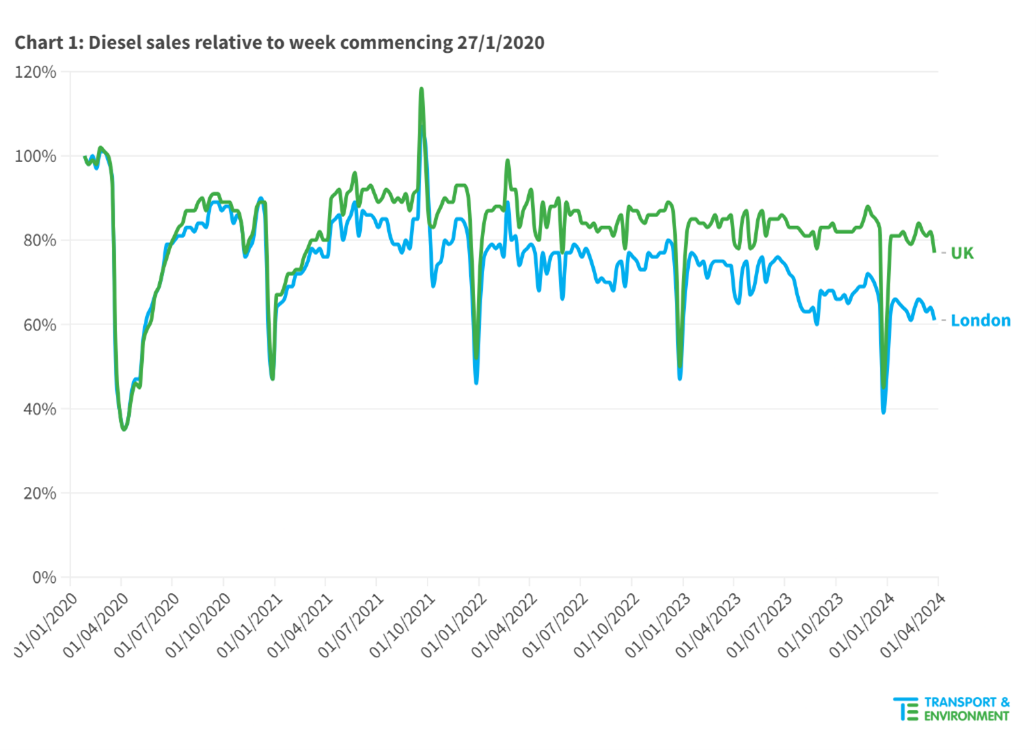
Matt Finch, UK policy manager at T&E, said: “Diesel is another dirty fossil fuel that the UK has found itself reliant on imports for, often from countries with undemocratic Governments that have poor human rights records.
“The smart move would be to follow London’s lead, stop burning imported dirty diesel and switch to using clean British electrons as quickly as possible.”
London introduced the ULEZ, which charges older, more polluting cars a fee to enter the city, in 2019.
Euro 6 diesel cars, or those produced in 2015 and prior, and Euro 4 petrol cars, or those produced 2006 or prior, have to pay £12.50 each day they enter.
T&E says that by replicating low emissions zones in cities throughout the country, the UK could enhance its energy security.
Oliver Lord, UK head of clean cities campaign, said: “We’ve known for years that diesel fumes are ruining our lives so it’s inspiring to see this change in London, but the bottom line is we won’t breathe freely until diesel engines are ditched for good.
“With the right commitment, coordination and leadership from all levels of government our cities can be almost free of diesel by 2030, but only when coupled with the support to make that happen and especially for small businesses.”

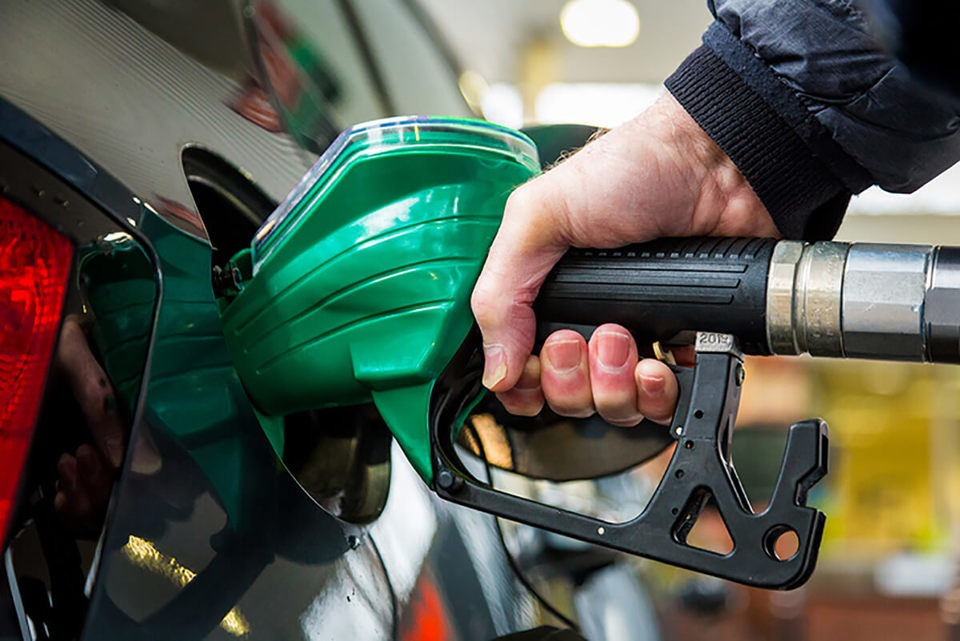





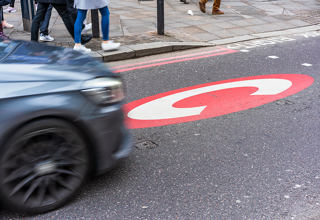
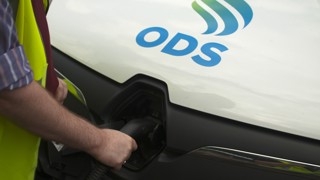

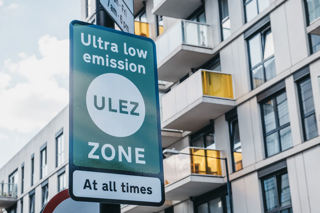













Aqua Carpatica - 16/04/2024 12:20
I've been listening to a very interesting book this week. It's entitled 'Spin Dictators' - The Changing Face of Tyranny in the 21st Century. I think a lot of fleet managers may be interested in reading this book too.